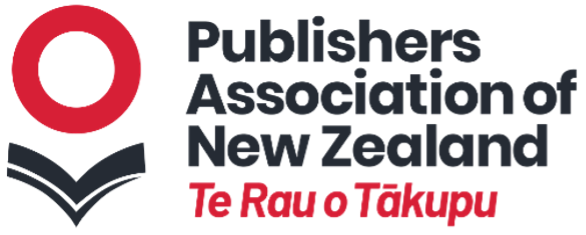Michiel Kolman (MK): There are two main drivers to address D&I: it is the right thing to do and there is a compelling business case. Which one is more important in NZ?
| Peter Dowling (PD): The two are really intertwined. PANZ wants to do the right thing and in particular to adhere to the Treaty of Waitangi/Tiriti o Waitangi. There are a diverse range of books in New Zealand but the publishing workforce doesn’t reflect the make-up of society. So to continue publishing books that reach and reflect all readers, we need to break down any barriers to entry for people of diverse backgrounds.
MK: D&I rose to the PANZ agenda in 2020: what triggered that? (PD): Diversity & inclusion have been on the agenda for some years now. PANZ Council has previously focused on reflecting our bicultural nationhood and respect for Māori. We’ve also observed the good work being led by the UK Publishers Association and others. |
|
Our PANZ International Conference 2018 featured two sessions on diversity in publishing, including our invited guest Josie Dobrin from Creative Access, UK. Josie’s visit gave us valuable insights, and led to PANZ engaging with government agencies about D&I. Then the PANZ Publishers Retreat 2019 charged education councillor Alex Collins and I with policy development and implementation of a D&I plan.
MK: There are many lenses on D&I (gender, tribal background, sexual identity, disability, etc.). Are you focusing of any particular lenses now and how will that change over time?
|
|
(PD): We start from a position of respect for the sovereignty of Māori enshrined in the Treaty. From there Alex’s and my approach was to identify the best people and governance structure for PANZ to progress across all the D&I lenses. The PANZ working group brought Anton Blank, Carolyn Lagahetau and Mish Wickremesekera to the table, and we’ve hopefully learned enough now to avoid focusing through one lens to the exclusion of others. That said, there is a really pressing need for greater ethnic diversity in New Zealand publishing houses. |
MK: Although you have not done your D&I survey (stocktake), what is the impression so far from the workshops etc. on D&I in NZ publishing? Is there a view on staff working at publishers, as well as authors and/or readers? First ideas about D&I as depicted in your publications?
(PD): At the workshops that Anton ran via Zoom last year, the attendees were really reflective of the demographics of publishing. The industry is overwhelmingly Pākehā (New Zealand European) and female. While there is strong Māori publishing and a lesser amount of Asian or Pacific Island-authored books, Anton’s guidance into unconscious bias made us realise there is a way to go before we are fully inclusive.
We plan to undertake a first D&I survey this year.
MK: You joined Diversity Works NZ: what services do they provide and what has the impact been?
(PD): Diversity Works NZ is the national body that advises workplaces on diversity. They are helping integrate diversity and inclusion into over 400 organisations, and to measure the positive outcomes. Our joining Diversity Works NZ is helping PANZ to make continuous improvement in D&I, and means our own members can access workshops, advice, policy and procedure templates, networking and more. Mary Haddock-Staniland and Guillermo Merelo from Diversity Works NZ have given sound advice and led an online workshop for members.
MK: How many of your members have D&I policies? What went smoothly in formulated these and where was it not that easy? Any unique NZ solutions here?
(PD): This is evolving. Participants in Anton’s workshops are rolling out policies, based on the PANZ template that our subcommittee developed. Some members are Māori-owned and others are already well along with policies to respect mana whenua (Māori customary authority).
MK: You have a designated special advisor: Anton Blank (Ora Nui). Tell me a bit more about Anton’s profile and role.
(PD): Anton’s company Ora Nui works to generate debate about diversity and develop skills for people to deal with a diverse range of population groups. But Anton is also an independent Māori publisher of indigenous literature. We’re blessed to have someone with his D&I expertise who also knows publishing.
MK: Finally: any advice for other PAs embarking on a D&I journey?
(PD): PANZ has found it takes time and application to bring open thinking into an organisation, and that it’s a very rewarding process if followed thoroughly. D&I is now a permanent part of PANZ business. Having a set of data to measure progress is the next step for us, but in other countries that might be a starting point. Having the right people to support you in the process makes it easier when, as we all do, you’ll have to face your own unconscious biases.



